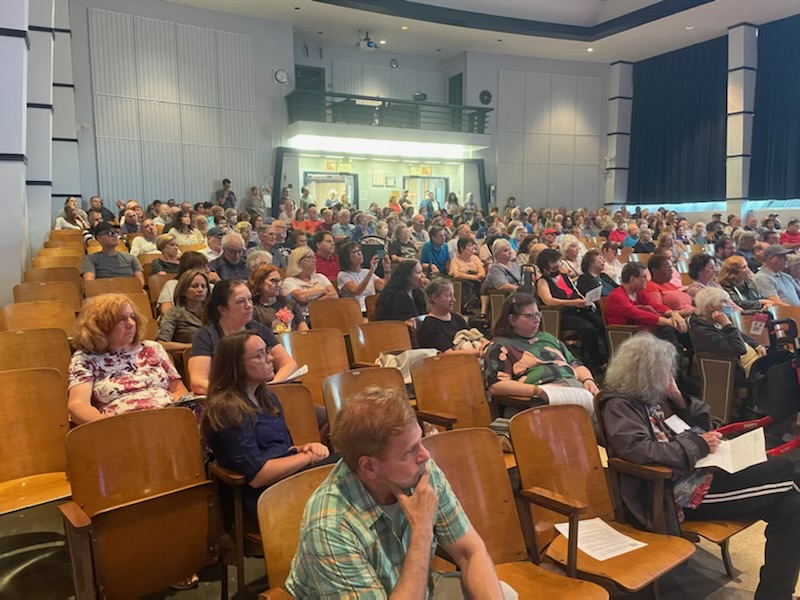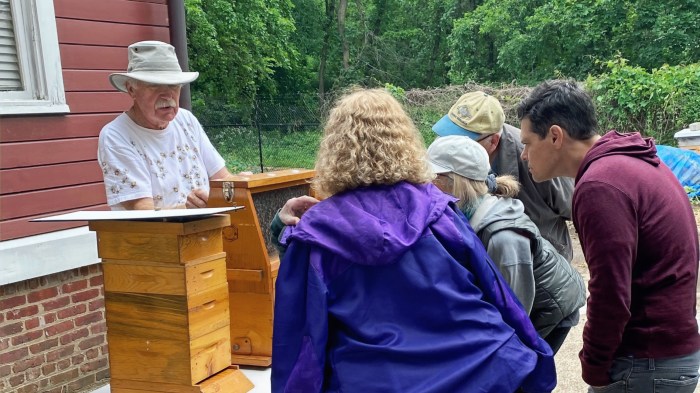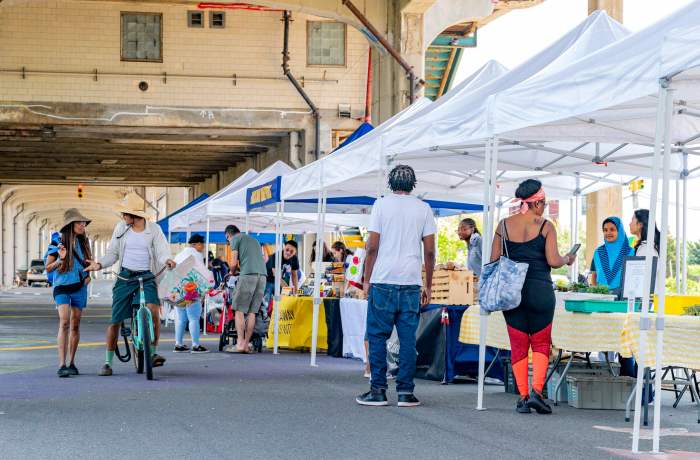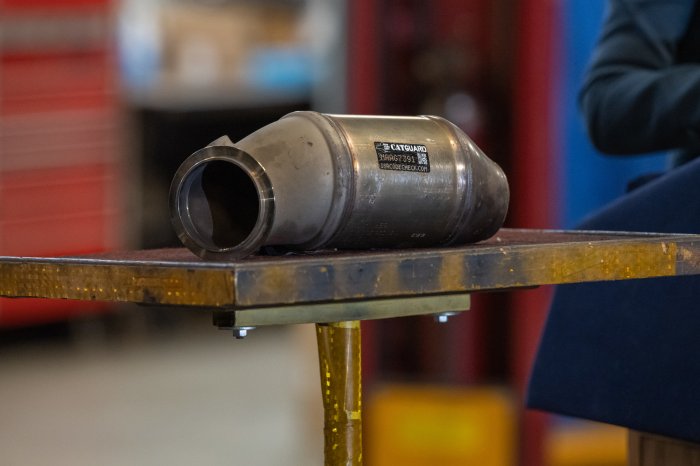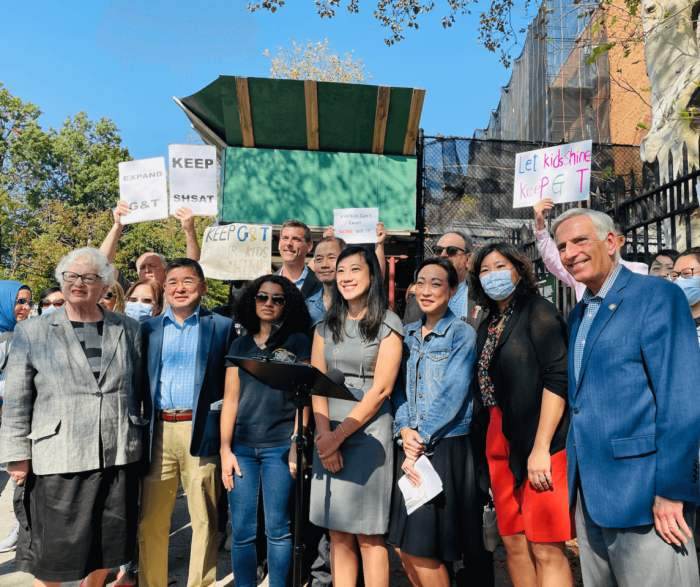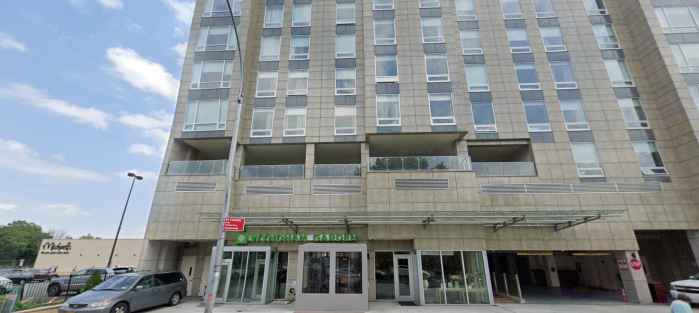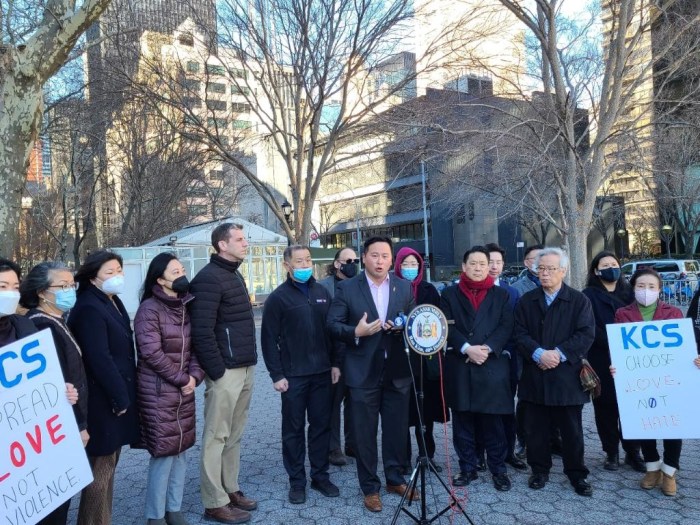More than 450 residents filled a school auditorium in Douglaston on June 20 to learn about a climate law that is slated to go into effect next year and is likely to raise the monthly cost of owning a co-op or condo.
The attendees were briefed on what’s known as Local Law 97, which was passed by the City Council in 2019, that requires building owners with properties greater than 25,000 square feet to cut their carbon emissions to a pre-determined amount or face hefty penalties starting in 2024. The law, which is less onerous when it comes to rent regulated apartments and doesn’t apply to houses, provides no breaks for condos and coops.
The event, held at PS 221, was hosted by Councilwoman Linda Lee, who was joined by Councilwoman Vickie Paladino and the presidents of several co-op boards in eastern Queens. They were calling for co-op and condo buildings to be exempted from the new law — particularly buildings occupied by low-to-middle income earners — or at the very least the bill’s implementation to be delayed.
“Local Law 97 must be delayed,” Paladino told the audience, noting that the monthly assessments would likely go up because of the law. “There is no other way around this. This is a direct attack on the middle class.”
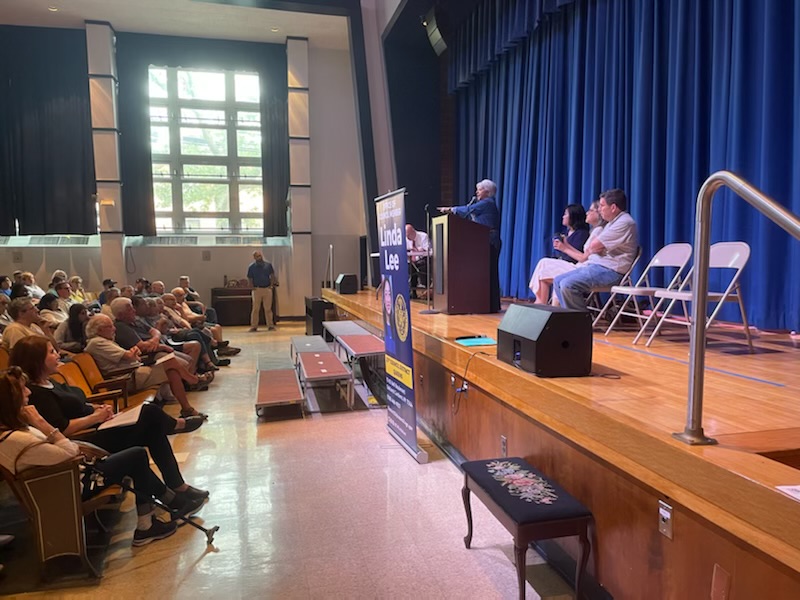
Paladino said that co-ops and condos are a form of affordable housing, and that it is unfair that the owners of these units would be subject to the law and increased assessments.
The legislation was passed by the council in its attempt to tackle climate change, with large buildings targeted since about 70 percent of New York City’s greenhouse gas emissions come from buildings.
Under the rules, large buildings must meet new energy efficiency standards and comply with greenhouse gas emission limits by 2024, with stricter requirements going into effect in 2030 and every 5 years through 2050. The purpose of the new rules is to reduce building emissions by 40% by 2030 (compared to 2005) and 80% by 2050.
While most modern buildings will meet the 2024 requirements, many older condo and co-op buildings will not—and are therefore likely to face fines. The fines will also rise in 2030 when the emission standards get stricter.
Robert Friedrich, president of the board of directors at Glen Oaks Village, a coop development with 2,904-units, said his development would face stiff fines.
He said the development would be fined $394,000 each year starting in 2024, which would jump to $1,500,000 per year in 2030.
He said that the building would still be subject to penalties even if major work was conducted.
“Even if we spent $24.5 million to replace our working boilers with the most energy efficient boilers available today the fines would not be eliminated,” Friedrich said, who noted that such an undertaking would cost unit holders about $9,100 each.
“This is money we don’t have—and it is for boilers we don’t need.”
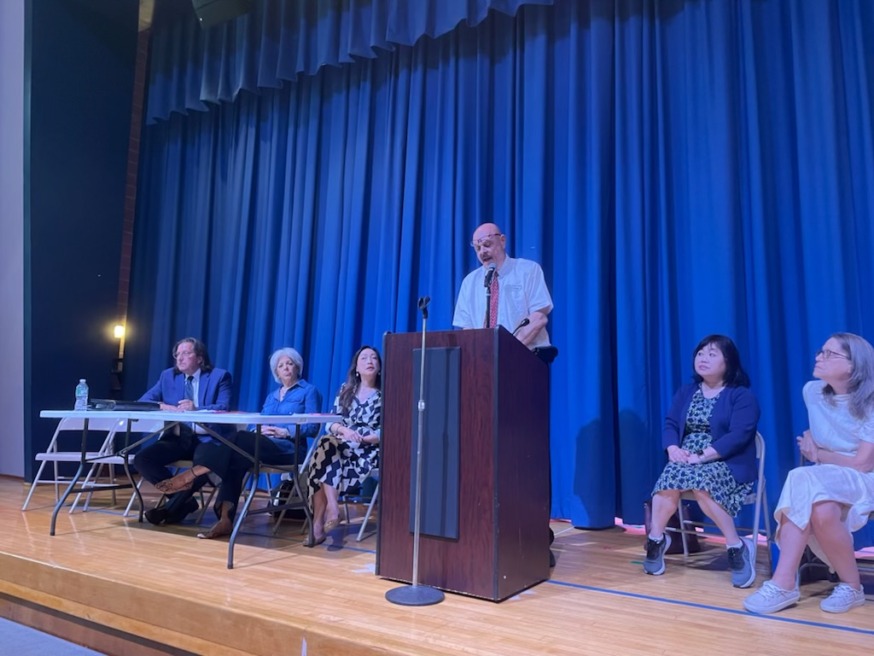
He said that if they did the work, the fine in 2030 would be reduced from $1,500,000 to $880,000.
He said for the co-op to go completely electric, the entire building would need to be rewired and it would cost anywhere from $35 million to $50 million.
The bill encourages building owners to adopt electrical heating systems and end the use of oil and gas. The state is also transiting the grid to be dependent on renewable energy, as opposed to fossil fuels.
Paladino told the audience that the implementation of the new law needs to be postponed.
“We are not ready for Local Law 97,” Paladino said at the meeting. “We need time to catch up.”
The councilwoman has introduced a bill, Int. 913, that would delay the implementation of the law for seven years. She urged the crowd to reach out to all 51 council members to request they sign on to the bill. The bill currently has nine sponsors.
Lee, who is a sponsor of Int. 913, said the bill would also provide time for the council to figure out alternative solutions.
“This will buy us some time,” Lee said.
She said that she has a piece of legislation that calls for exempting garden apartments and is also working with Assemblyman Edward Braunstein on a state bill that would provide many co-op and condo buildings with tax abatements for capital improvements while trying to comply with Local Law 97.
Lee also said more needs to be done to notify unit-holders of the change.
“I don’t think a lot of folks realize that the penalties are actually starting in January 2024,” she said.
Lee, like Paladino, called on the audience to reach out to their councilmembers.
“We record the number of people who call,” Lee said, and when there is an influx of calls “it helps us when we speak to speaker’s office.”

